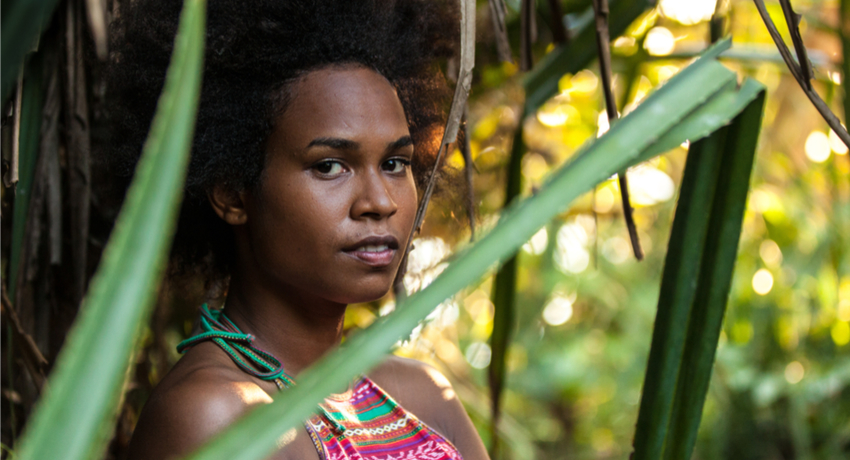Pacific feminists are mobilising in the face of resistance to their claims for rights and recognition at the national, regional and global levels. With the world’s lowest percentages of women in decision-making, and the world’s highest levels of violence against women, Pacific feminists are creating new regional spaces to talk and to be heard and setting out the path forward for collective action on gender equality.
“We can weave together feminism, faith and culture like a beautiful pandanus mat.” (Alisi Rabukawaqa, Fiji)
Pacific national legislatures have the lowest representation of women in any region in the world.
It is important to recognise a diversity of feminisms around the world. My research focus is in the Pacific, looking at feminisms that are inclusive in contrast to the exclusion of formal institutions. Pacific national legislatures have the lowest representation of women in any region in the world. For example in Tonga no women were elected in 2014 despite a record number of women standing as candidate. Similarly in Vanuatu no women running in the 2016 election were elected in parliament. UN Women acknowledged that although the number of women in parliament continues to inch forward the slow rate of progress will severely check global development plans such as the successful implementation of the Sustainable Development Goals (SGDs).
A look at civil society feminist spaces reveals that there is a push back against this exclusion at the formal level, with collective organising around gender issues. The Inaugural Pacific Feminist Forum, held in Suva, Fiji in November 2016 offers an excellent case in point for this claim. It brought together over 100 feminists from 13 countries. Participants represented Fiji, New Caledonia, Marshall Islands, Samoa, PNG, Solomon Islands, Tonga, Tuvalu, Bougainville, Vanuatu, Kiribati, New Zealand, and Australia.
Its stated aim was to share stories, map journeys and build the feminist movement in the Pacific. The Forum was a civil society space of collaboration, respect, diversity, intersectionality, intergenerational leadership and activism. The topics covered at the Forum ranged from feminist resourcing and funding, coalition building, organising, building movements, and navigating diversity.
One of the key achievements of this Forum was the signing of the Feminist Charter, a document to act as a platform of action for change for Pacific feminists. Feminist activist reaction to the process and conclusion of the Charter covered the importance of including diverse voices and its benefit in providing a way forward for young feminists. Diverse activists from around the Pacific had input into the Charter including those representing the Fiji Women’s Rights Movement, Haus of Khameleon, Diverse Voices and Action (DIVA) for Equality, and Pacific Young Womens Leadership Alliance.
The Pacific Feminist Forum celebrated Pacific feminism and strengthened the regional networks for a stronger voice on important issues through alliance building and forging a ‘strategic sisterhood’. To support transformative feminist action the space was designed to allow feminists, women human rights defenders and advocates to regroup, learn, share challenges, forge new relationships and strengthen existing ones. Joining forces with all diversities to create something new and transformative.
This new regional initiative has been instrumental in strengthening the collective approach of the feminist movement in the Pacific
This new regional initiative has been instrumental in strengthening the collective approach of the feminist movement in the Pacific. It offered a novel mechanism to organise and amplify Pacific regional voice in light of shrinking spaces for progressive feminist voices at a global level. Pacific feminists are forming alliances to represent a broad remit – ‘Pacific small island state feminist, women human rights defenders, CSOs and social movements, Pacific lesbians, in solidarity with all LGBTI and gender non-conforming people, all women, all people, all human rights, social, economic, ecological and climate justice, everywhere.’
My research shows that Pacific feminists voice the contextually specific views of progressive feminist Pacific Islanders on gender and can incorporate faith and culture in an intersectional feminist vision.’ It also shows that this initiative gives exposure and openness to new terms, a feeling of inclusion of difference within the Pacific feminist movement, and serves as a prompt to forge new networks and alliances for different projects. I interviewed diverse Pacific feminists attending the Forum who are active, engaged and wanting to lead and speak up. Young women new to feminism found a place in Pacific feminism:
“I can wear my Pacific feminist t shirt in SI – these forums find ways to speak up whereas before it was ‘whoa’.”
People with diverse sexual orientations and gender identity found a place in Pacific feminism. A trans young woman said:
“Being part of the women’s movement as an activist, I have come to learn a lot about the different capacities that I need to embody in different spaces. It has been a struggle doing that but I try to embrace and celebrate it.”
Young women facing immediate climate displacement found a place in Pacific feminism:
“Feminist is still a word that is still evolving with our changing lifestyles and perceptions of society. Being vulnerable to climate change changes me as a feminist to see the world from a difference lens.”
My research also unearthed that women who feel unable to get traction from their national governments can use the benefit of regional level dialogue to find partners, raise concerns and have regional institutions place pressure on their governments to implement change:
“We were reacting to a closed space. We felt restricted, we felt unsafe, but we also felt the need to talk and discuss. It is not like we weren’t having those discussions, but we wanted to have it in other spaces too. We were just, well, let’s have another space.”
Pacific feminists are re-shaping and re-defining solidarity to be inclusive yet also acknowledging and respecting diversities. My research documents civil society organisations and alliances playing a crucial role in deliberating and advocating for greater inclusion of a diversity of actors in policy issues worldwide. This demonstrates the agility of civil society in the Pacific – without meaningful channels for political participation in national politics, and shrinking spaces at the global level, Pacific feminists are at the forefront of leading change locally, regionally and globally including the 62nd session of the UN Commission on the Status of Women.
Let’s share and celebrate the civil society activists worldwide as they #PressforProgress, holding, reclaiming and creating spaces.
This article was first published on Fawcett Society, and has been reproduced here with permission. Read the original here.
Dr Jane Alver is a Senior Research Fellow in the Faculty of Business Government and Law at the University of Canberra. Her research area is civil society activism for gender equality.





